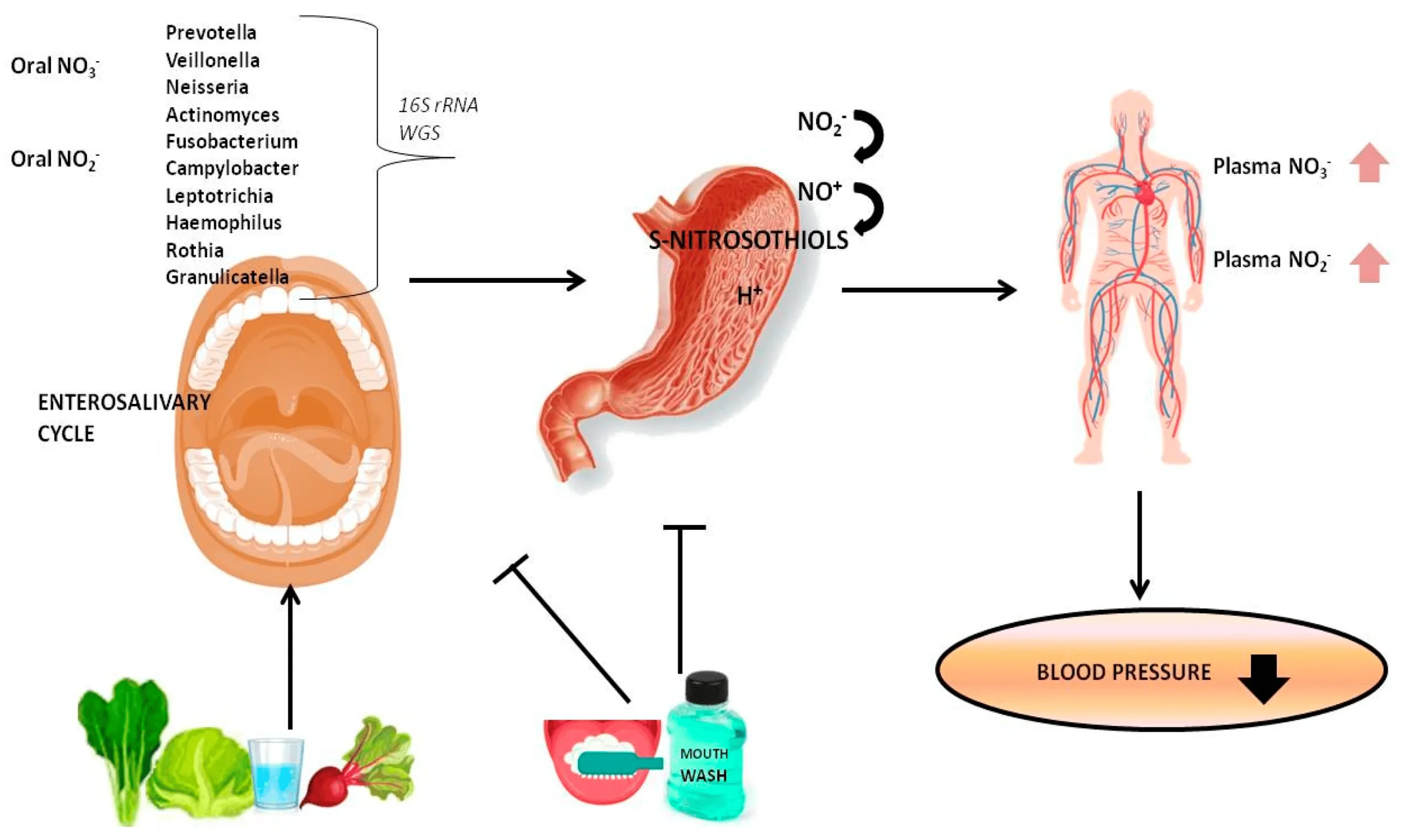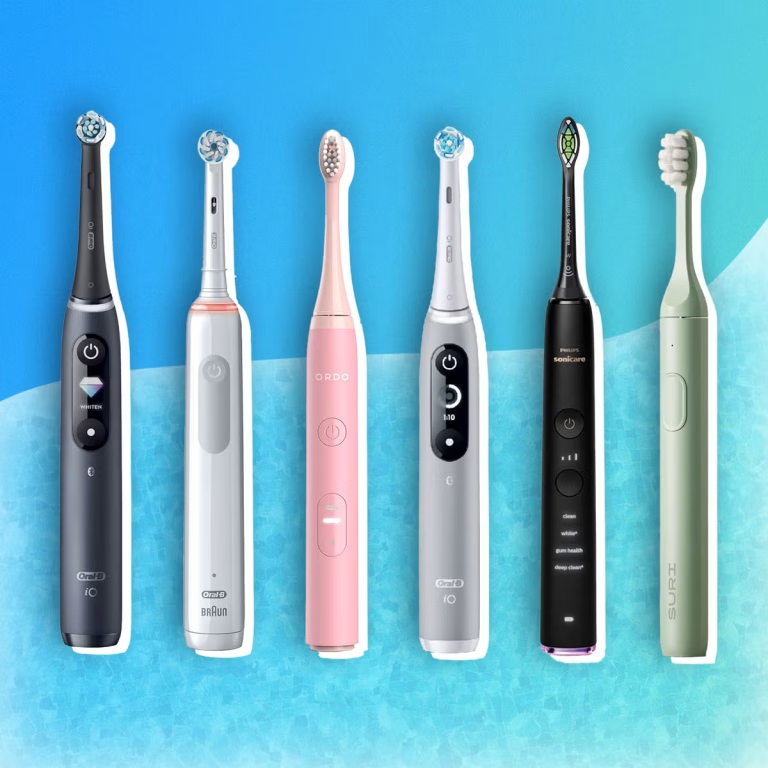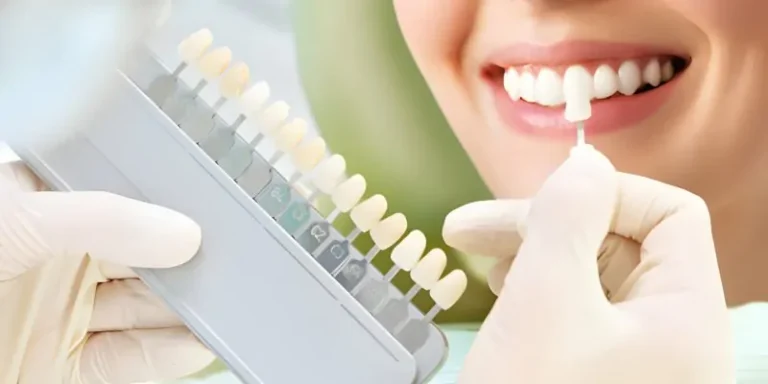The Science Behind Nitric Oxide Production: How Your Mouth Contributes to Cardiovascular Health
The Role of Nitric Oxide in Cardiovascular Health
Let’s start with a little science lesson—don’t worry, I’ll keep it simple and fun. Nitric oxide might sound like something straight out of a chemistry textbook, but trust me, it’s a big deal for your heart. So, what exactly is nitric oxide, and why should you care?
Nitric oxide is a molecule your body produces to help keep your blood vessels healthy. Think of it as a tiny superhero that relaxes and widens your blood vessels, improving blood flow and lowering blood pressure. This is crucial for your cardiovascular health because better blood flow means your heart doesn’t have to work as hard to pump blood throughout your body. Pretty cool, right?
But here’s where it gets even more interesting: your mouth plays a starring role in this process. Certain bacteria in your mouth, the good guys, help convert nitrates from the foods you eat into nitrites. These nitrites then travel through your digestive system and get converted into nitric oxide. It’s like a little factory in your body, and your mouth is the first step in the assembly line.
Now, you might be wondering, “Why does this matter to me?” Well, maintaining healthy levels of nitric oxide can help reduce your risk of heart disease, stroke, and other cardiovascular issues. It’s like giving your heart a protective shield. And the best part? You can support this process simply by taking care of your oral health and eating the right foods.
So, the next time you brush your teeth or munch on some leafy greens, remember: you’re not just caring for your smile—you’re giving your heart a helping hand, too. Who knew your mouth could be such a powerhouse?
How Your Mouth Plays a Key Role
Alright, let’s dive a little deeper into the magic happening in your mouth. You might not think of your gums and teeth as a bustling ecosystem, but they’re home to trillions of bacteria—some good, some not so good. And when it comes to nitric oxide production, the good bacteria are the real MVPs.
Here’s how it works: when you eat foods rich in nitrates, like spinach, arugula, or beets, those nitrates make their way into your mouth. This is where your oral bacteria step in. Specific strains, like Neisseria and Veillonella, get to work converting those nitrates into nitrites. It’s like a tiny chemical reaction happening right under your nose—literally.
These nitrites then travel down to your stomach and intestines, where they’re transformed into nitric oxide. This nitric oxide enters your bloodstream, helping to relax your blood vessels and improve circulation. It’s a seamless process that connects what’s happening in your mouth to the health of your entire cardiovascular system.
But here’s the catch: this process relies on a healthy balance of oral bacteria. If harmful bacteria take over—thanks to poor oral hygiene or overusing antibacterial products—it can throw a wrench in the works. Less beneficial bacteria means less nitrate conversion, which means less nitric oxide production. And that’s bad news for your heart.
Think of it like a garden. If you want your plants to thrive, you need to nurture the good soil and pull out the weeds. Similarly, if you want your oral bacteria to do their job, you need to take care of your mouth. Brushing, flossing, and eating nitrate-rich foods are like watering and fertilizing that garden.
So, the next time you’re enjoying a salad or sipping on a beet smoothie, remember: your mouth is the starting line for a process that keeps your heart healthy. It’s a small but mighty role, and it’s all happening right under your nose. Pretty amazing, huh?
Dietary Choices That Support Nitric Oxide Production
Let’s talk about food—because who doesn’t love a good reason to eat healthier? When it comes to boosting nitric oxide production, your diet plays a starring role. The good news? You don’t need to overhaul your entire meal plan. Just a few simple tweaks can make a big difference.
First up, let’s talk about nitrate-rich foods. These are the superstars that kickstart the nitric oxide production process. Leafy greens like spinach, kale, and arugula are packed with nitrates, as are veggies like beets, celery, and radishes. Even fruits like pomegranates and watermelon can give your nitric oxide levels a boost.
Here’s a quick list of nitrate-rich foods to add to your grocery cart:
- Leafy Greens: Spinach, kale, arugula, and Swiss chard.
- Root Vegetables: Beets, carrots, and radishes.
- Other Veggies: Celery, cabbage, and fennel.
- Fruits: Pomegranates, watermelon, and citrus fruits.
But it’s not just about what you eat—it’s also about how you prepare it. Cooking can sometimes reduce the nitrate content in foods, so try incorporating more raw or lightly cooked options into your meals. For example, a fresh spinach salad with a squeeze of lemon or a side of roasted beets can be a delicious way to get your nitrates.
Now, let’s address the elephant in the room: what about processed foods? Unfortunately, processed meats like bacon and hot dogs are also high in nitrates, but they’re not the kind you want. These foods often contain added nitrates and nitrites that can form harmful compounds in your body. Stick to natural, whole foods for the best results.
And don’t forget about hydration! Drinking plenty of water helps your body process nitrates more efficiently. Plus, it keeps your mouth healthy by washing away food particles and bacteria.
Here’s a pro tip: pair your nitrate-rich foods with sources of vitamin C, like oranges, strawberries, or bell peppers. Vitamin C helps enhance the conversion of nitrites into nitric oxide, making your meals even more heart-healthy.
So, what’s on the menu tonight? Whether it’s a beet and goat cheese salad or a green smoothie packed with spinach and kale, your heart (and your mouth) will thank you. Bon appétit!
The Downside of Overusing Antibacterial Products
Now, let’s talk about something that might surprise you: sometimes, being too clean can backfire. We’re all for good oral hygiene, but when it comes to antibacterial products, there’s such a thing as overdoing it. Here’s why.
Antibacterial mouthwashes and treatments are designed to kill bacteria—and that’s great when it comes to getting rid of the bad guys that cause cavities and gum disease. But here’s the catch: they don’t discriminate. These products can also wipe out the beneficial bacteria in your mouth, including the ones that help produce nitric oxide.
Think of it like using a sledgehammer to crack a nut. Sure, you’ll get the job done, but you might also damage something important in the process. When you overuse antibacterial products, you’re essentially disrupting the delicate balance of your oral microbiome. Less beneficial bacteria means less nitrate conversion, which means less nitric oxide production. And as we’ve learned, that’s not great news for your heart.
So, what’s the alternative? Moderation is key. If you use mouthwash, opt for an alcohol-free version that’s gentler on your oral bacteria. Better yet, consider natural alternatives like saltwater rinses or mouthwashes with ingredients like xylitol, which can help maintain a healthy balance of bacteria without going nuclear.
It’s also worth noting that brushing and flossing are still your best friends when it comes to oral hygiene. These habits help remove plaque and harmful bacteria without wiping out the good guys. And don’t forget to visit your dentist regularly for cleanings and check-ups—they’ll help keep your mouth in tip-top shape without overdoing it on the antibacterial front.
At the end of the day, it’s all about balance. Your mouth is a complex ecosystem, and taking care of it means nurturing the good while managing the bad. So, the next time you reach for that antibacterial mouthwash, ask yourself: is this really necessary? Your heart—and your oral bacteria—might thank you for thinking twice.
Practical Tips for Balancing Oral and Cardiovascular Health
Ready to take action? Here are some simple, actionable steps you can take to support both your oral health and your heart:
- Brush and Floss Daily: This is your first line of defense against harmful bacteria.
- Choose the Right Mouthwash: Opt for alcohol-free or natural options to protect beneficial bacteria.
- Eat Nitrate-Rich Foods: Load up on leafy greens, beets, and other veggies to boost nitric oxide production.
- Stay Hydrated: Water helps your body process nitrates and keeps your mouth clean.
- Visit Your Dentist Regularly: Professional cleanings and check-ups are essential for maintaining a healthy mouth.
By taking these steps, you’re not just caring for your teeth and gums—you’re supporting your heart, too. It’s a win-win!
Conclusion
Your mouth is more than just a smile—it’s a gateway to better cardiovascular health. From the role of oral bacteria in nitric oxide production to the importance of a balanced diet and mindful oral care, it’s clear that taking care of your mouth can have a big impact on your heart.
So, what are you waiting for? Start making small changes today, like adding more leafy greens to your meals, switching to an alcohol-free mouthwash, or scheduling that dental check-up you’ve been putting off. Your heart—and your smile—will thank you.
Remember, your mouth and your heart are connected in ways you might not have realized. By taking care of one, you’re taking care of the other. Now that’s something to smile about!
FAQs
Q: What is nitric oxide (NO), and why is it important?
A: Nitric oxide is a molecule that helps blood vessels relax, improving blood flow. It’s crucial for cardiovascular health, regulating blood pressure, and preventing blood clots.
Q: How does the mouth contribute to nitric oxide production?
A: Oral bacteria convert nitrate from food into nitrite. When nitrite mixes with saliva and is swallowed, it’s converted into nitric oxide in the stomach and bloodstream.
Q: What types of foods can boost nitric oxide production through the oral pathway?
A: Leafy green vegetables like spinach, kale, and arugula, as well as beets, are rich in nitrates that oral bacteria can convert to nitric oxide.
Q: How does using mouthwash affect nitric oxide production?
A: Antiseptic mouthwashes can kill beneficial oral bacteria, reducing the conversion of nitrate to nitrite and potentially lowering nitric oxide levels.
Q: What role does saliva play in nitric oxide production?
A: Saliva is essential because it mixes with nitrite produced by oral bacteria and facilitates the conversion to nitric oxide when swallowed.
Q: Can poor oral hygiene affect nitric oxide production?
A: Yes, imbalances in oral bacteria due to poor hygiene can disrupt the nitrate-to-nitrite conversion process, potentially reducing nitric oxide production.
Q: What are the cardiovascular benefits of maintaining healthy nitric oxide levels?
A: Healthy nitric oxide levels support healthy blood pressure, reduce the risk of blood clots, and improve overall blood flow, benefiting cardiovascular health.
Q: Are there specific oral health conditions that can impact nitric oxide production
A: Gum disease (periodontitis) can disrupt the balance of oral bacteria and potentially interfere with nitric oxide production.
Q: How can I support healthy nitric oxide production through oral care?
A: Maintain good oral hygiene with regular brushing and flossing, limit the use of antiseptic mouthwash, and consume nitrate-rich foods.
Q: Should I be concerned about low nitric oxide levels, and how can I test them?
A: If you have concerns about cardiovascular health, discuss nitric oxide testing with your healthcare provider. They can advise on appropriate testing and lifestyle modifications.







